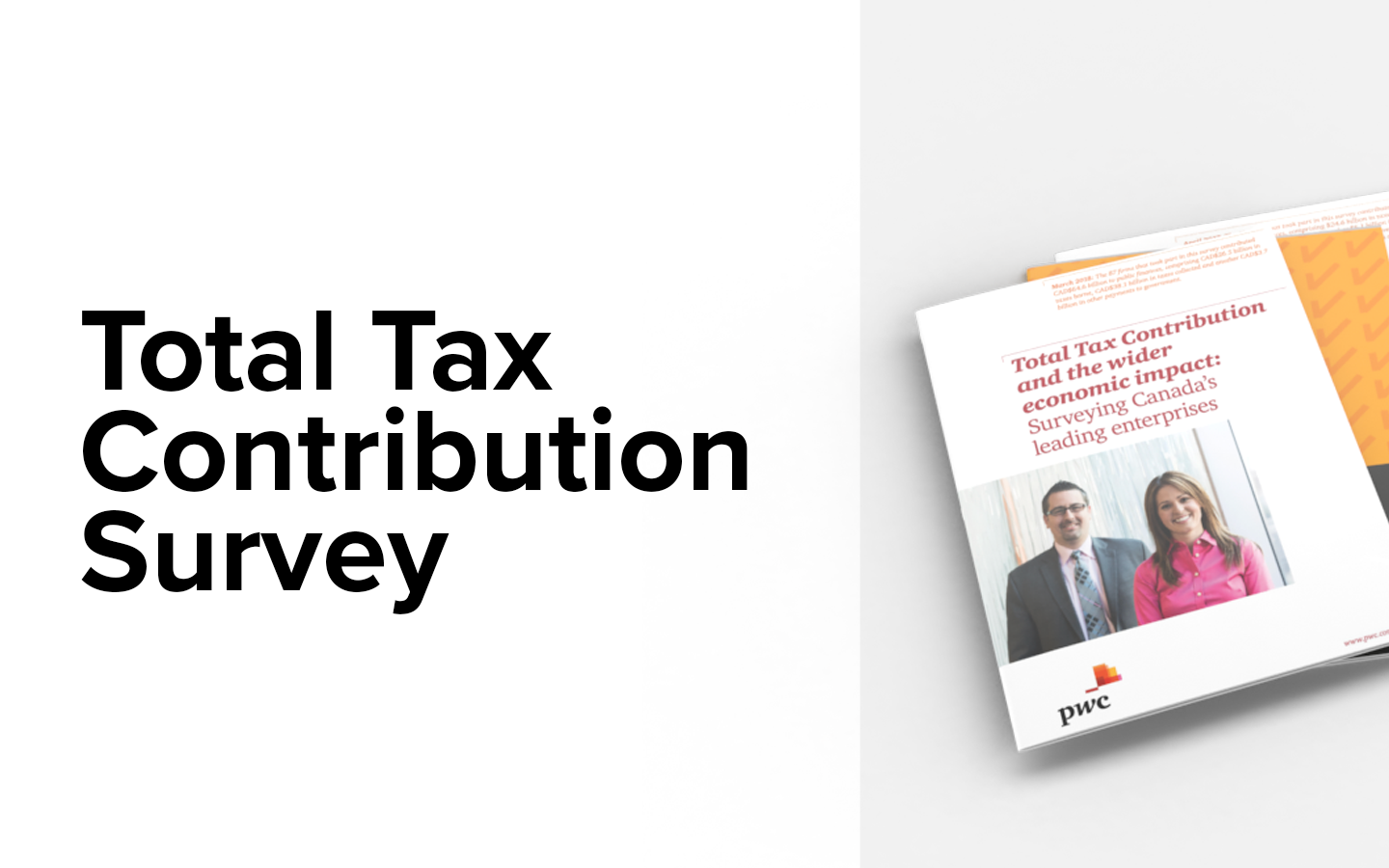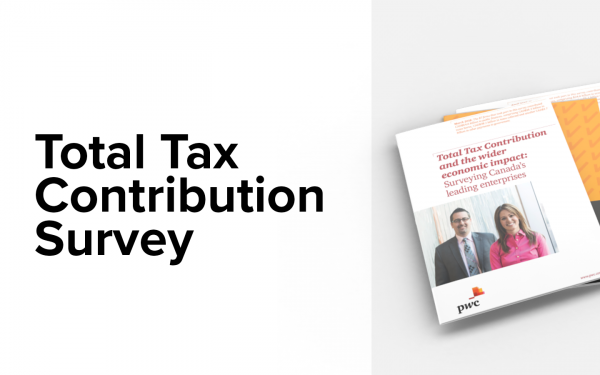First Annual Total Tax Contribution Survey
Surveying Canada’s leading enterprises
Executive Summary
The purpose of the survey is to show the tax contribution of large businesses to public finances in Canada and provide insight into the complexity of the tax system.
The Total Tax Contribution survey of CCCE members has attracted a large number of participants. Sixty-three companies took part in the survey, providing data on their largest Canadian taxes borne and collected in the accounting year to 31 December 2012. The high participation level demonstrates the value for companies in preparing and understanding their TTC data.
The survey uses the PwC Total Tax Contribution methodology, which looks at all the different taxes that companies pay and administer. The Total Tax Contribution includes both the taxes borne by a company (taxes which are a cost to the business) and taxes they collect. Taxes collected are not a direct cost of the business but are administered on behalf of the government.
The Total Tax Contribution
Sixty-three participants made a significant contribution to the Canadian economy. They contributed $40.6bn to all levels of government, comprising of $19.0bn in taxes borne and $21.6bn in taxes collected. The participants also paid an additional $5.7bn in other payments to government. Corporate income tax is the largest tax paid by the participants. In 2012, these companies paid a total of $6.0bn in federal corporate income tax or 17.0% of federal corporate income tax receipts.
The survey collected data on sixty-four Canadian taxes and other payments to government. On average, for every $1 of corporate income tax paid, there was another $0.94 in other taxes borne such as employment taxes paid by the employer, unrecoverable sales taxes (GST, HST, QST, PST) paid on business inputs, and property taxes paid on property, $0.59 in other payments to government, and $2.21 in taxes collected such as people taxes collected from employees.
People taxes are the largest element of the Total Tax Contribution by percentage for the participants, accounting for 41.5% in the survey. This is followed by product taxes of 26.2%, and profit taxes of 25.5%.
The complexity of the tax system
A good tax system raises revenue to fund public expenditure and at the same time minimizes the administrative burden on business. The federal tax system collects over half of the tax revenue from only a third of the number of taxes for the survey participants. The sixty-three companies contributed $23.0bn in Total Tax Contribution (including $8.9bn of taxes borne and $14.1bn of taxes collected) to the federal government in 2012.
The survey also collected data on the cost of complying with the tax legislation. Tax compliance activities include preparing tax figures, completing and filing tax returns and paying taxes. On average, participants have twenty-two full time equivalent employees working on Canadian tax compliance. For all taxes, the cost on average is 0.9% of their taxes borne, effectively representing an additional cost of doing business.
Putting the Total Tax Contribution data in context
The average Total Tax Rate (TTR) for the sixty-three companies in the survey is 33.4%. The Total Tax Rate measures the cost of all the different taxes borne against profitability.
Government takes the largest share of the total value distributed by the sixty-three study participants in the Total Tax Contribution survey. The companies paid 38% of their value distributed to government in the form of taxes borne, taxes collected and other payments to government, 33% went to shareholders or was retained for reinvestment, and 29% went to employees.
The companies taking part in the survey are large Canadian employers. Employment is a major way in which companies contribute to the economy. They employed 759,276 employees4 in 2012 with total employment taxes borne and collected of $16.8bn. The jobs that the participants created, and the employment taxes that were paid in respect of those jobs, are an important part of their contribution to the economy.
The survey participants employ skilled, well paid workers. They paid an average wage of $64,781 and employment taxes of $22,180 per employee. This is a measure of the taxes directly generated through jobs created by these large employers.
About
CEO Council
The Canadian Council of Chief Executives (CEO Council) is a not‑for‑profit, non‑partisan organization composed of the CEOs of Canada’s leading enterprises. The CEO Council engages in an active program of public policy research, consultation and advocacy. The CEO Council is a source of thoughtful, informed comment from a business point of view on issues of national importance to the economic and social fabric of Canada. CEO Council members represent all sectors of the Canadian economy. The companies they lead collectively administer $6 trillion in assets, have annual revenues in excess of $850 billion, and are responsible for the vast majority of Canada’s exports, investment, research and development, and training.
PwC
PwC Canada helps organizations and individuals create the value they’re looking for. Our 5,700 partners and staff in offices across the country are committed to delivering quality in assurance, tax, consulting and deals services. PwC Canada is a member of the PwC network of firms with more than 195,000 people in 157 countries











